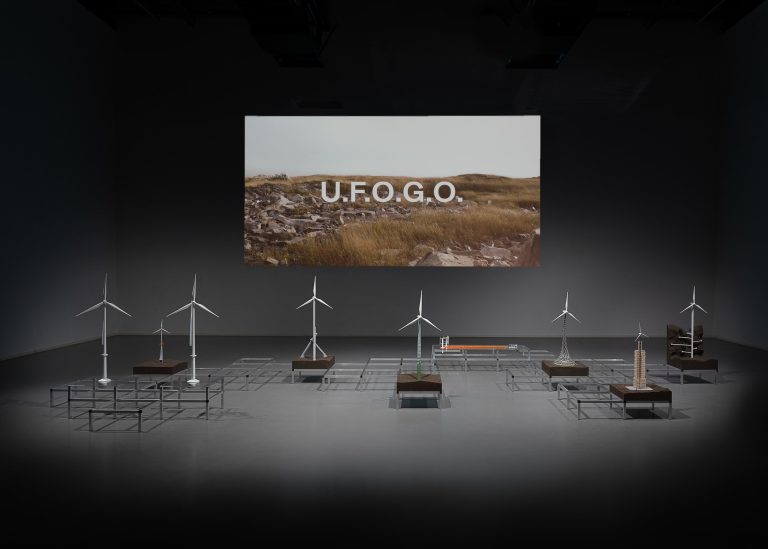In a time of environmental crisis, wind energy stands out as a crucial renewable resource. The U.F.O.G.O. Wind Turbines project, conceived by 16 MA Product Design students from ECAL, addresses both the potential and the aesthetic challenges of wind turbines. These innovative concepts are now on display at the Vitra Design Museum, showcasing eight speculative yet practical designs inspired by the unique environment of Fogo Island, Newfoundland.
The project began with a week-long immersion on Fogo Island in October 2022. Known for its natural beauty and abundant wind, the island provided an ideal setting for exploring the integration of wind turbines into the natural landscape and local culture. Guided by their tutors, the students worked with the island’s community to understand their needs and perspectives.
The resulting designs are diverse and tailored to specific sites on the island. EVIND is designed to charge electric cars, while PNEUM doubles as a greenhouse to support food production. WINDSEED, an offshore turbine, incorporates seaweed farming as a potential new source of income for the islanders. Other designs, such as PYRE, use 3D printing to provide alternatives to expensive imported construction materials.
Some turbines, such as CLIFFHANGER, are inspired by the island’s traditional stilt houses, while RR REUSE repurposes abandoned fish processing factories. FLO, unique in its visual impact, appears white from above but reveals a spectrum of colours when viewed from the ground. Each design meets technical and regulatory requirements while enhancing the island’s visual landscape.
The U.F.O.G.O. project is an example of how contextual design can foster greater social acceptance of renewable energy technologies. By addressing both functional and aesthetic aspects, these concepts pave the way for a more harmonious integration of wind energy into everyday life.
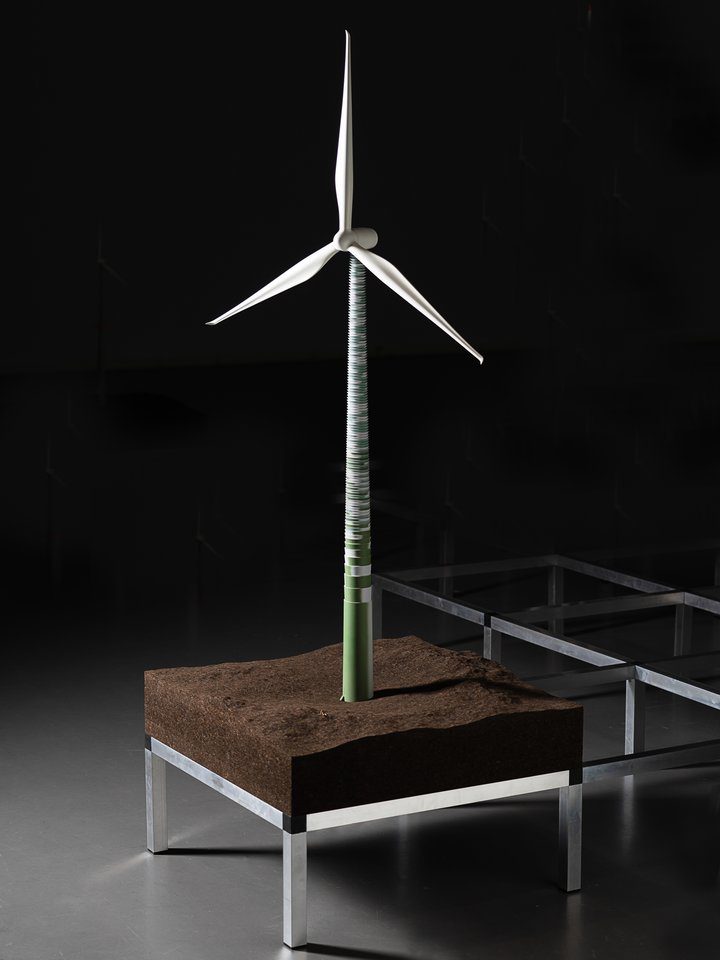
FLO
Photography by MARVIN MERKEL, courtesy of ECAL
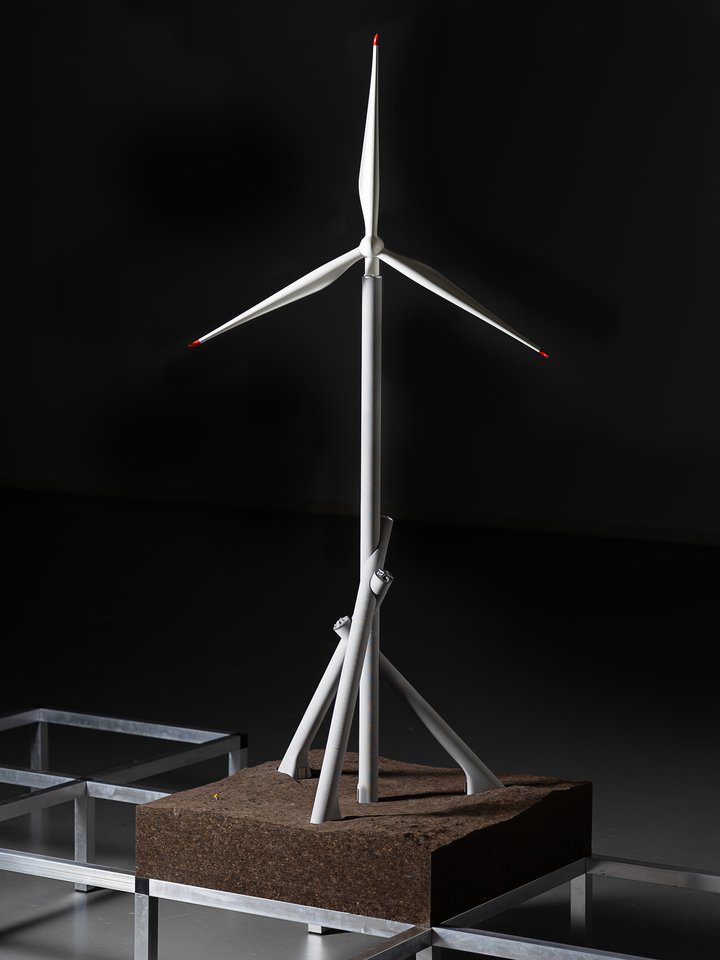
Pyre
Photography by MARVIN MERKEL, courtesy of ECAL
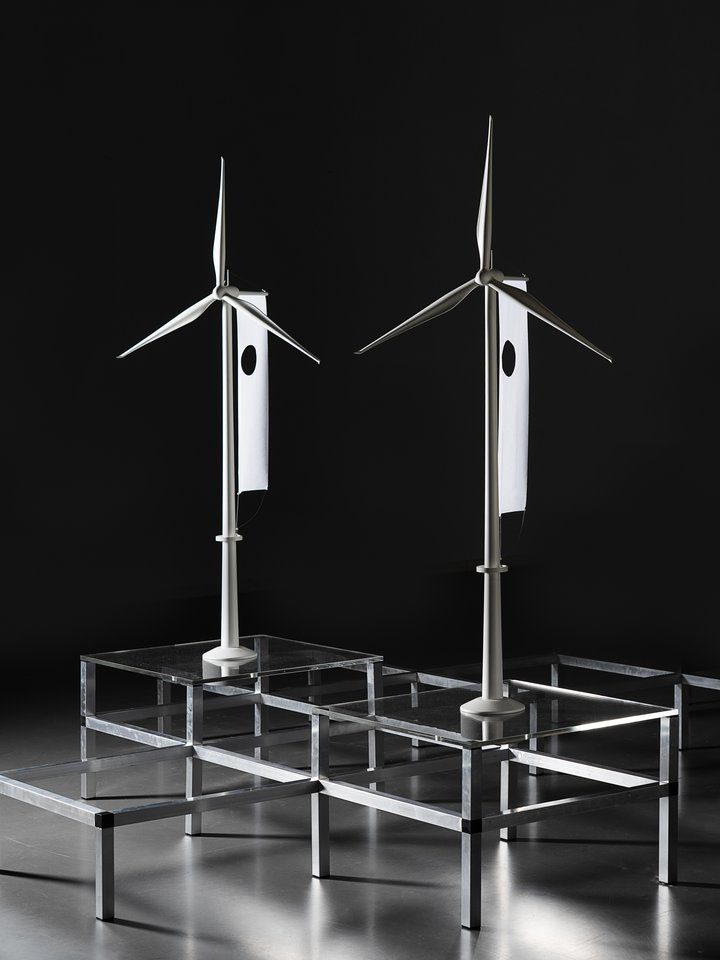
Fogoflags
Photography by MARVIN MERKEL, courtesy of ECAL
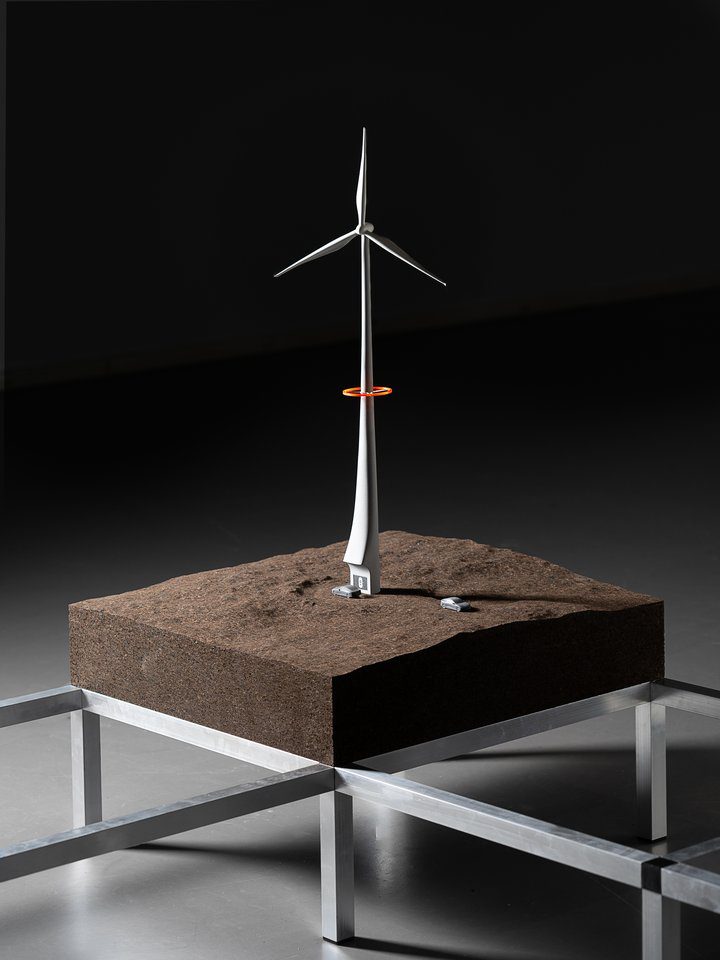
Evind
Photography by MARVIN MERKEL, courtesy of ECAL
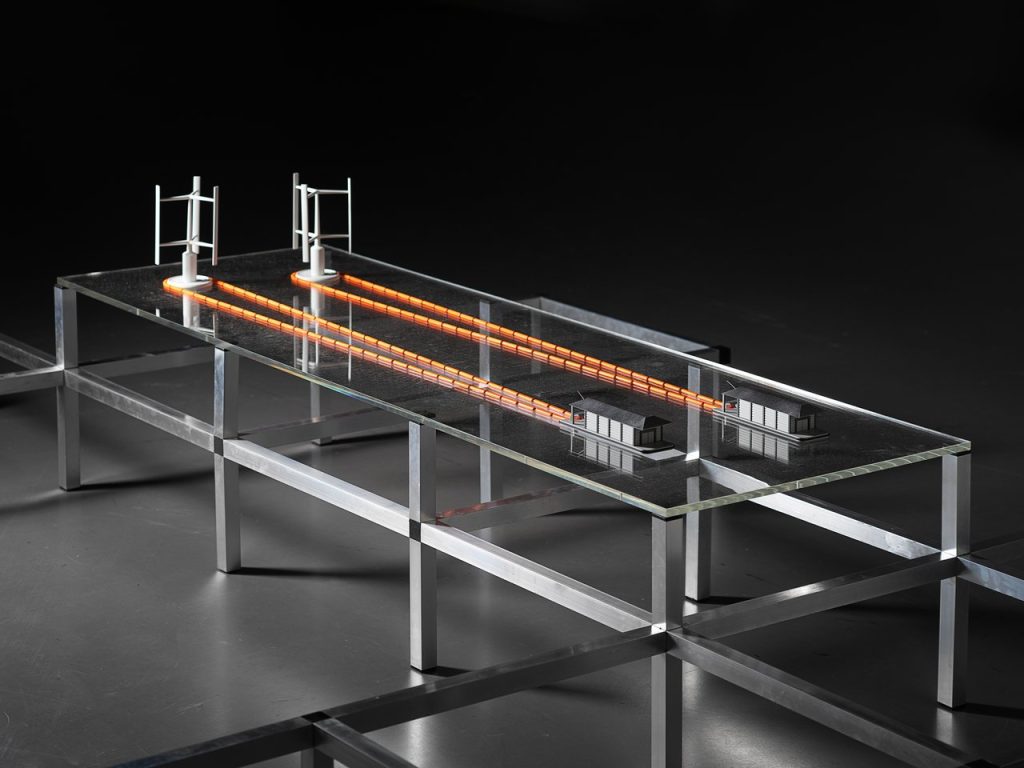
WindSeed
Photography by MARVIN MERKEL, courtesy of ECAL
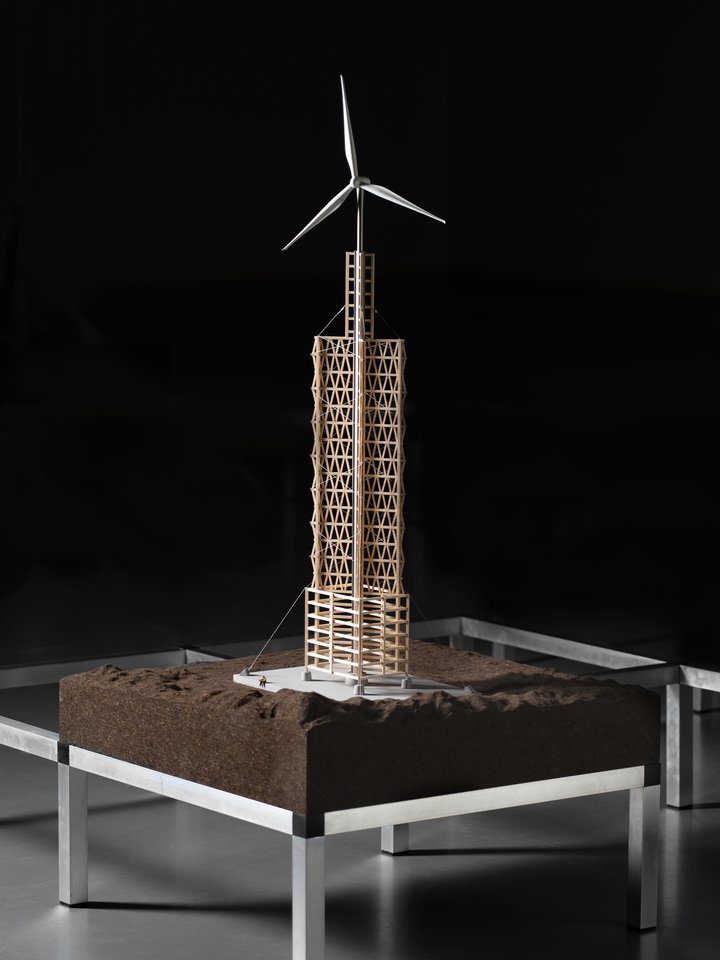
RR Reuse
Photography by MARVIN MERKEL, courtesy of ECAL
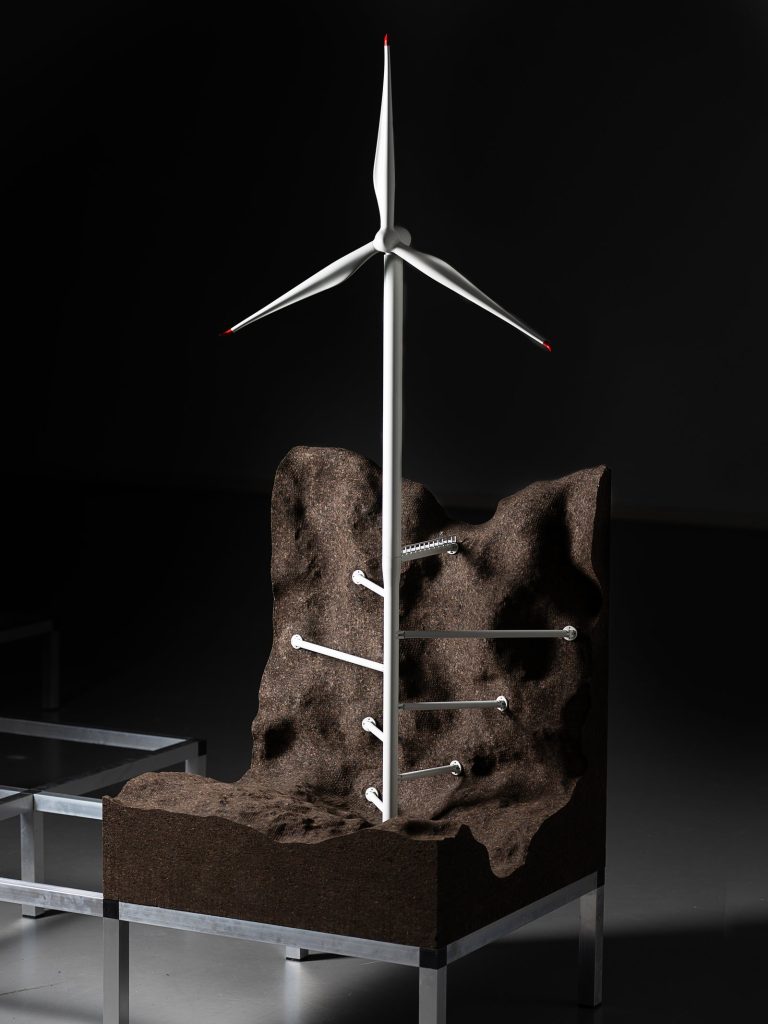
Cliffhanger
Photography by MARVIN MERKEL, courtesy of ECAL
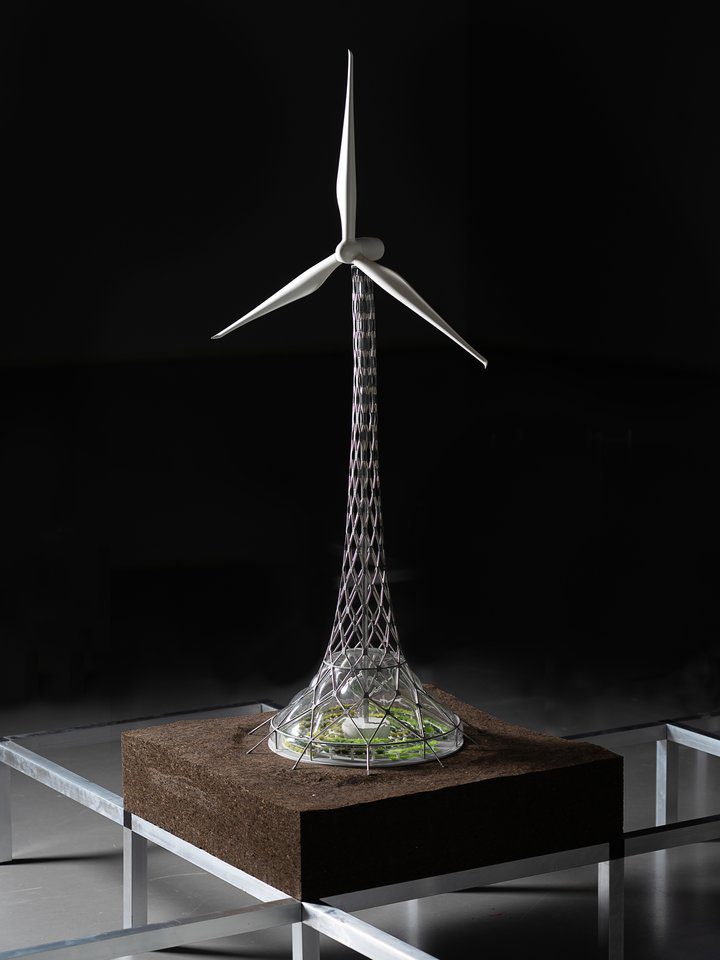
Pneuma
Photography by MARVIN MERKEL, courtesy of ECAL
